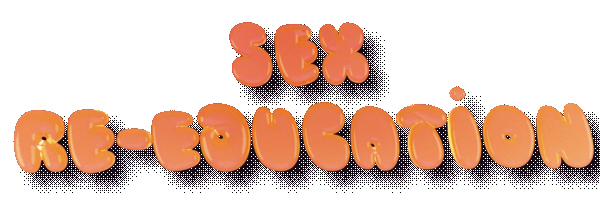The first time Kara* had an orgasm, she blacked out. “It took me to another dimension,” she tells Refinery29. She was fresh into college and had just started hooking up with her current partner when it happened. While she’s had plenty of incredible orgasms since, that first one just hit different. But not all of us are that lucky.
The lore of the eye-opening, mind-boggling first orgasm has been discussed and dissected for as long as we’ve been recorded having them — and the media can’t get enough of it. Plenty of women’s outlets have described first orgasms as “heavenly” or “glorious” or “exhilarating” — even Refinery29 published a piece back in 2017 detailing 18 people’s first orgasms. One contributor described their orgasm as “quite powerful” and another said they were told they were glowing the next day. The exceptional inaugural orgasm has made it into films, books and television shows, too: Who could forget Tara Reid screaming “I’m coming!” in American Pie the first time she received cunnilingus or Aimee Lou Wood’s first time masturbating in Sex Education?
AdvertisementADVERTISEMENT
Are our first orgasms really supposed to be that perfect and life-changing? And should we spend the rest of our lives chasing that high, comparing each and every climax to the one that came first?
We sure hope not. In fact, the idea that your earliest orgasm should be that euphoric might be blocking you from experiencing one in the first place. Or, when you do have that first O, you might feel disappointed that it didn’t live up to the hype. “If you're young and you're a kid and you're exploring your body and you don't really know what you're doing, the first orgasm [can be] confusing, it's surprising, it's a little scary,” says Laura Purdy, MD, chief medical officer at healthcare platform Wisp. Dr. Purdy says many people with vulvas actually find their first orgasm more assuring than incredible. “It’s almost like a relief because they realize, ‘I'm not broken, I'm capable of experiencing this thing,’” she says. “At least for the people that I have had the opportunity to interact with, it's almost like that's a starting point for them.”
The first orgasm may feel like it takes the cake because, often, it’s just the one that’s most memorable. “I think I just didn’t know sex could be that good until that exact moment,” Kara says. It’s kind of like seeing the ocean for the first time: The overwhelming admiration and sense of existentialism you feel is powerful, sure, but that doesn’t mean the ocean isn’t as beautiful (or even more beautiful) the more you see it.
AdvertisementADVERTISEMENT
If your first orgasm was just alright or even kind of confusing or if you haven’t had one yet, remember that it’s all about managing your expectations. The world sets us up to believe that these momentous experiences come easily to us, when in reality it takes work. “If you're looking at what other people are doing and if you're using other people as the standard to compare yourself to, you may set yourself up for failure,” Dr. Purdy says.
Even if your first orgasm was somehow perfect, in an ideal world your climaxes should only get better as you learn more about your body and desires. They’re not just a fun finale of good sex, either — they’re a skill set, according to Emily Morse, PhD, sex therapist and host of Sex With Emily. She adds that if your first orgasm was the best, most powerful one you’ve had, then you’ve got a lot of work ahead of you. “Learning how to have great orgasms is something you learn over time,” she tells Refinery29. “Just like your first time having sex isn’t the best, the first time having an orgasm isn’t the best. The first time you orgasm is confirmation that your body can give you so much pleasure, but that’s about it. It’s a starting point.”
Dr. Purdy agrees and adds that a lot of shame, expectations and different perceptions come with orgasming. “An orgasm is a bodily function and every body is going to have a different level of needs, wants and desires. It all comes down to being willing to explore and seek to understand your body without placing judgment on it or without having guilt, fear or shame,” she says. “Those emotions really get in the way of a fulfilling sexual experience. Being willing to give yourself the room that you need to experience the orgasm in the way that it is, is the best thing that you can do for yourself.”
AdvertisementADVERTISEMENT
For those looking to improve their orgasms (or even have their very first one), a good step in bettering your sex life is to engage in more solo play. “Taking time to fully understand your body and what makes you feel good when you’re alone is going to help you when you’re with a partner,” Dr. Morse says. “Pay attention to what feels good: what pressure, what speed and what techniques.”
Maybe our first orgasms are so special because they show us what our bodies are capable of. If your first one is a home run, it should give you even more inspiration to keep knocking it out of the park in the future.
*Name has been changed for privacy
AdvertisementADVERTISEMENT







